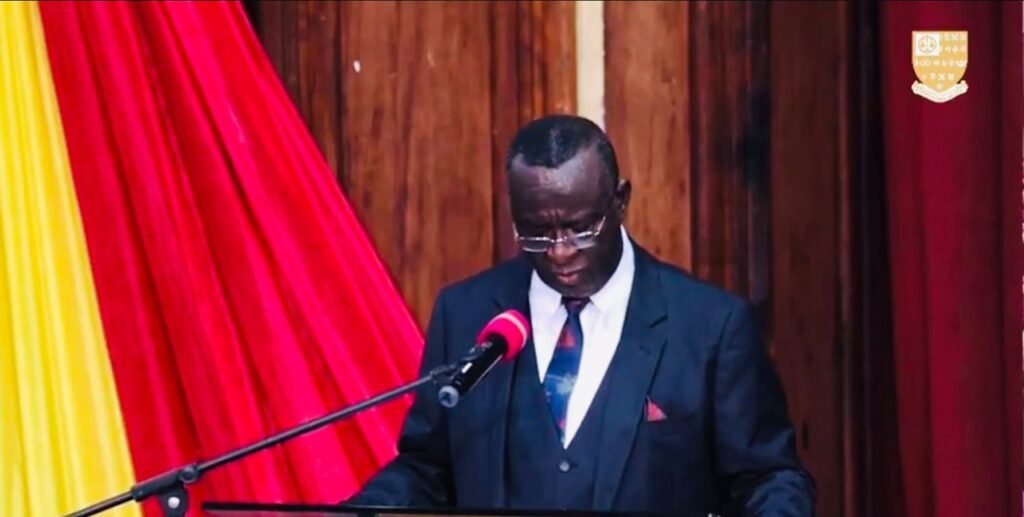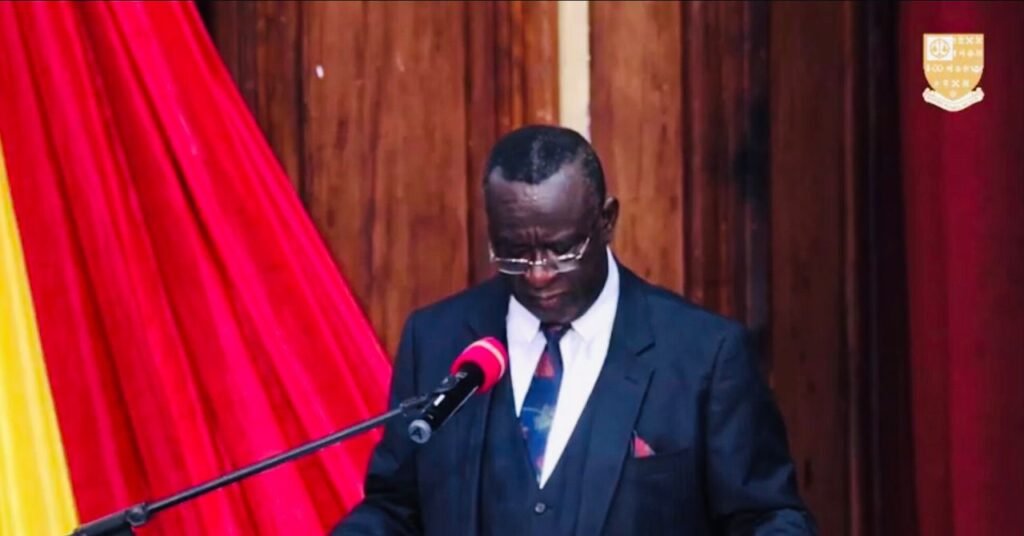Acting Chief Justice and Chief Justice nominee, Justice Paul Baffour Bonnie, has declared his full support for ongoing efforts to reform Ghana’s legal education system, describing the current moment as a “defining season” that demands urgent transformation and reflection.
Speaking at the 2025 Call to the Ghana Bar held at the Accra International Conference Centre, where 824 new lawyers were formally inducted into the legal profession, Justice Baffour Bonnie said Ghana’s legal education system stands at a critical crossroads.
He called for reforms that go beyond numerical expansion to ensure depth, quality, and innovation in the training of lawyers.
“My nomination, as fate would have it, comes at a rather defining moment — a season both for reflection and urgent reform in legal education in our beloved Ghana. The challenge confronting legal education in Ghana is real and pressing”.
Justice Paul Baffour Bonnie
From the backlog of aspiring students waiting with bated breath to secure entry into the Ghana School of Law, to the nagging questions about quality, infrastructure, and the need to modernize in an era of rapid technological advancement, the Chief Justice Nominee stressed for holistic reforms that would survive generations, adding that traces of reforms are visible all over.
Justice Baffour Bonnie, who also serves as Chairperson of the General Legal Council, emphasized that the current state of legal education should not be viewed as a crisis but rather as an opportunity for renewal and progress.
“Challenges must not be seen as signs of decay, but bedpans of renewal. The challenges we face today are the very light that must illuminate our path forward.”
Justice Paul Baffour Bonnie
He acknowledged that public discourse around the subject has reached a fever pitch, with many aspiring law students expressing frustration over limited access and opaque entry processes into the Ghana School of Law.

According to him, this is a pivotal time for key stakeholders—including the General Legal Council, the Ghana School of Law, and law faculties nationwide—to reimagine and modernize the country’s approach to legal training.
“The airwaves are already thick with debates on the need for reforms. As hope and frustration for the aspiring lawyer intermingle in equal measure, the Ghana School of Law, under the guidance of the General Legal Council, and in partnership with all stakeholders, must therefore stand ready to rise to this new dawn.”
Justice Paul Baffour Bonnie
Reforms Must be Guided
Justice Baffour Bonnie, however, cautioned that reforms must be guided by quality, integrity, and purpose, not mere expansion. He warned that increasing access without maintaining high professional and ethical standards could dilute the quality of the Ghanaian Bar.
“We must, however, ensure that the reforms we seek do not merely expand the numbers, but truly refine the very papers of legal education and the legal profession of Ghana in the 21st century”.
Justice Paul Baffour Bonnie
His remarks come at a time when Ghana is preparing for a major overhaul of its legal education framework. The Attorney General and Minister for Justice, Dr. Dominic Akuritinga Ayine, recently announced that a Legal Education Reform Bill will soon be submitted to Parlaiment for approval.

According to Dr. Ayine, the proposed bill seeks to expand access to legal education, promote equality of opportunity, and eliminate long-standing bottlenecks that have restricted the number of lawyers called to the Bar each year. The reform, he said, will also modernize the curriculum and decentralize the training process to align with international best practices.
Under the proposed model, law graduates will undertake a one-year “law practice course” administered by accredited law faculties across the country. The course will focus exclusively on practical training in key areas such as civil and criminal procedure, advocacy, legal ethics, and the law of evidence.
At the end of the course, students will sit for a national bar examination administered by a newly established independent Council for Legal Education. This new structure will significantly reduce the current duration of legal education from five to four years.
“The reform also signals the gradual end of the Ghana School of Law’s monopoly over professional training,” Dr. Ayine explained at a public forum in Accra. While the Ghana School of Law will continue to exist to serve current students and foreign-trained lawyers seeking admission to the Ghana Bar, its role will evolve to complement the new decentralized training model.
Justice Baffour Bonnie’s endorsement of the reform agenda is a strong institutional signal of support from the judiciary, which has long been seen as a key stakeholder in shaping the professional ethics and competence of lawyers.

His remarks also reflect a growing consensus among policymakers, academics, and practitioners that Ghana’s legal education system must evolve to meet the needs of a fast-changing society and a more complex global legal environment.
The Acting Chief Justice concluded his address by urging new lawyers to embrace integrity, humility, and public service as the foundation of their practice. He reminded them that their calling is to serve justice, not privilege, and that the future of the profession depends on their fidelity to the values that define the rule of law.
READ ALSO: IMF Confirms Major Gains in Ghana’s Energy Sector as Reforms Begin



















